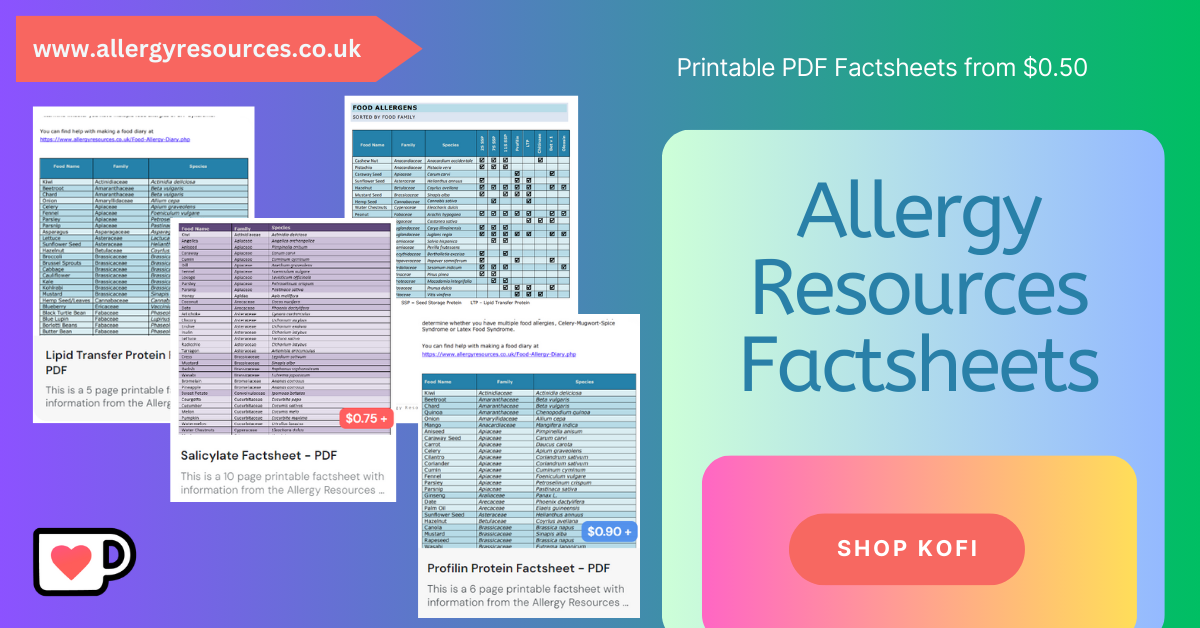
OAK POLLEN ALLERGY
Key Allergens
Oaks are large trees in the Fagaceae family of plants. Other plants in this family include beech and chestnut trees.
Most oak species have one known allergen, this is a Bet v 1-like protein. This means that the pollen from oak trees are similar in shape to those of birch trees, the most common type of pollen allergen that people react to. These proteins are sometimes also called PR-10 as they are used by the plant in pathogenesis (defence against disease).
The Sawtooth Oak tree, which is found most commonly in Asia and the holly oak also contain an airway profilin protein. These proteins are panallergens which can cause allergic reactions across many different species of plants.
Oak pollen is most prevalent in the UK between April and June, peaking in April. This varies in different countries. It is considered to have moderate allergenicity.
Most oak species have one known allergen, this is a Bet v 1-like protein. This means that the pollen from oak trees are similar in shape to those of birch trees, the most common type of pollen allergen that people react to. These proteins are sometimes also called PR-10 as they are used by the plant in pathogenesis (defence against disease).
The Sawtooth Oak tree, which is found most commonly in Asia and the holly oak also contain an airway profilin protein. These proteins are panallergens which can cause allergic reactions across many different species of plants.
Oak pollen is most prevalent in the UK between April and June, peaking in April. This varies in different countries. It is considered to have moderate allergenicity.
Associated Syndromes
You will see the Bet v 1 allergen mentioned in many pages on this website as it is a protein that has a common shape. If you are allergic to birch pollen, particularly the Bet v 1 protein then you can suffer oral allergy type symptoms to other fruits, nuts, herbs, spices and vegetables if they are similarly shaped. This is known as Pollen-Food Allergy Syndrome. You may be suffering from this syndrome if you suffer from oral allergy symptoms to 3 or more of the foods mentioned in cross reactivity section.
An allergy to oak pollen is also strongly associated with seasonal allergic rhinitis (hayfever) as well as asthma, rhinoconjunctivitis and atopic dermatitis.
An allergy to oak pollen is also strongly associated with seasonal allergic rhinitis (hayfever) as well as asthma, rhinoconjunctivitis and atopic dermatitis.
Cross Reactivity
Other tree pollens with Bet v 1 like proteins are alder, hazel, birch and hornbeam.
Food containing Bet v 1 proteins include almond, aniseed, apple, apricot, carrot, celery, cherry, chestnut, dill, soya, fenugreek, fig, hazelnut, jackfruit, kiwi, mango, melon, mung beans, parsley, parsnip, peach, peanut, pear, persimmon, plum, poppy seeds, raspberry, strawberry, tomato and walnuts.
Profilin allergens can be considered both pollen allergens and food allergens. Other plant pollens containing profilin are ragweed, mugwort, bermuda grass, sunflower, olive, rice, timothy grass, poplar, mesquite and maize. Foods containing profilin proteins are almond, aniseed, apple, aubergine, banana, barley, beetroot, peppers, carrot, celery, cherry, coriander, corn, courgette, cucumber, cumin, date, soya, fennel, fig, hazelnut, kiwi, lychee, mango, melon, mustard onion, orange, parsley, parsnip, peach, peanut, pear, persimmon, pineapple, plum, poppy seed, quinoa, rice, strawberry, sunflower seeds, tomato, walnut, wheat and lupin. There is a lot of cross over between profilin and Bet v 1 protein foods.
Food containing Bet v 1 proteins include almond, aniseed, apple, apricot, carrot, celery, cherry, chestnut, dill, soya, fenugreek, fig, hazelnut, jackfruit, kiwi, mango, melon, mung beans, parsley, parsnip, peach, peanut, pear, persimmon, plum, poppy seeds, raspberry, strawberry, tomato and walnuts.
Profilin allergens can be considered both pollen allergens and food allergens. Other plant pollens containing profilin are ragweed, mugwort, bermuda grass, sunflower, olive, rice, timothy grass, poplar, mesquite and maize. Foods containing profilin proteins are almond, aniseed, apple, aubergine, banana, barley, beetroot, peppers, carrot, celery, cherry, coriander, corn, courgette, cucumber, cumin, date, soya, fennel, fig, hazelnut, kiwi, lychee, mango, melon, mustard onion, orange, parsley, parsnip, peach, peanut, pear, persimmon, pineapple, plum, poppy seed, quinoa, rice, strawberry, sunflower seeds, tomato, walnut, wheat and lupin. There is a lot of cross over between profilin and Bet v 1 protein foods.
Resources
Websites
Worcester University - Pollen Calendar
Allergen Encyclopedia - Oak Pollen
Worcester University - Allergenic Pollen Types
Allergy UK - Allergic rhinitis
Allergy UK - Managing your asthma and your allergic rhinitis throughout the seasons
Articles and Journals
Oak pollen allergy in Korea, 2022
Allergy to oak pollen in North America, 2021
Birch pollen allergy in Europe, 2019
Allergenic pollen and pollen allergy in Europe, 2007
Let me know if you found any of these interesting or useful.
If you spot an article or research that you think is interesting you can message me or tag me on Facebook, Instagram or Twitter - links at the bottom of the page.